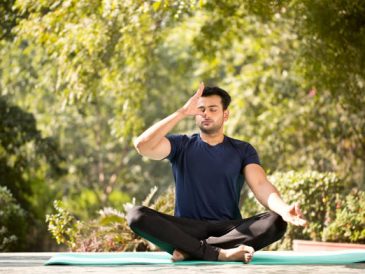In recent years, yoga has emerged as a powerful tool for holistic well-being, fostering physical fitness, mental clarity, and emotional balance. While traditionally associated with Eastern cultures, its benefits are increasingly being recognized worldwide, including in Africa. In this essay, we delve into how yoga is not only enhancing the well-being of young people across the African continent but also creating new avenues for employment and empowerment.
Yoga’s Journey to Africa:
Yoga’s journey to Africa traces back to the ancient exchanges between India and African civilizations, but its modern resurgence can be attributed to globalization and increased awareness of its benefits. As Western countries embraced yoga for its physical and mental health advantages, its popularity spread globally, reaching Africa as well. Today, yoga studios, wellness centers, and community initiatives promoting yoga can be found in urban centers and rural areas alike across the continent.
Promoting Well-being:
The practice of yoga offers a multitude of benefits that contribute to overall well-being. Physically, yoga asanas (postures) promote flexibility, strength, and balance. These physical benefits are particularly crucial in Africa, where access to conventional healthcare and fitness facilities may be limited in many regions. Yoga provides a cost-effective and accessible means of staying physically active and healthy.
Furthermore, yoga emphasizes mindfulness and meditation, which are invaluable tools for mental health. In a continent where stressors such as poverty, conflict, and inequality are prevalent, the mental resilience cultivated through yoga practice can be transformative. By learning to manage their thoughts and emotions, young Africans can navigate life’s challenges with greater equanimity and clarity.
Community Building and Social Connection:
Yoga also fosters a sense of community and social connection, which is vital for combating feelings of isolation and building support networks. Yoga classes often serve as spaces for individuals from diverse backgrounds to come together, fostering understanding and solidarity. This sense of belonging can be particularly empowering for marginalized groups, including youth facing discrimination or exclusion.
Moreover, yoga’s emphasis on compassion and empathy encourages practitioners to engage in seva, or selfless service, to their communities. Many yoga practitioners in Africa are involved in outreach programs that bring yoga and wellness practices to underserved populations, such as refugees, orphaned children, or survivors of trauma. Through these initiatives, yoga becomes a vehicle for social change and empowerment.
Empowerment through Employment:
Beyond its role in promoting personal well-being and social cohesion, yoga is also creating employment opportunities for young people in Africa. As the demand for yoga classes and wellness services grows, there is a need for trained instructors and practitioners. Recognizing this demand, various organizations and entrepreneurs are offering yoga teacher training programs and certification courses across the continent.
These training programs not only equip young Africans with valuable skills but also empower them to pursue careers in a rapidly expanding industry. Whether as yoga instructors, wellness coaches, or entrepreneurs establishing their own studios, young people are finding avenues for economic independence and professional fulfillment through yoga.
Moreover, the integration of yoga into sectors such as tourism, hospitality, and healthcare further expands employment opportunities. Resorts and eco-lodges are incorporating yoga retreats into their offerings to attract wellness-conscious travelers, while hospitals and rehabilitation centers are recognizing the therapeutic benefits of yoga for patients recovering from illness or injury.
Challenges and Opportunities:
Despite its potential to promote well-being and employment, yoga still faces challenges in Africa. Limited access to resources, cultural stigma, and misconceptions about yoga are some of the barriers that need to be addressed. Additionally, ensuring that yoga initiatives are culturally sensitive and inclusive is essential for their long-term success.
However, these challenges also present opportunities for innovation and collaboration. By partnering with local communities, governments, and NGOs, yoga practitioners and organizations can adapt their approaches to better meet the needs and preferences of African populations. Tailoring yoga programs to address specific health concerns, cultural norms, and socioeconomic realities can enhance their effectiveness and sustainability.
Conclusion:
Yoga’s journey in Africa is not just about physical postures or relaxation techniques; it is a journey of self-discovery, empowerment, and transformation. By promoting well-being, fostering community, and creating employment opportunities, yoga is enriching the lives of young people across the continent. As Africa continues to embrace yoga’s ancient wisdom in the modern world, its potential to bring about positive change—both individually and collectively—remains boundless.




